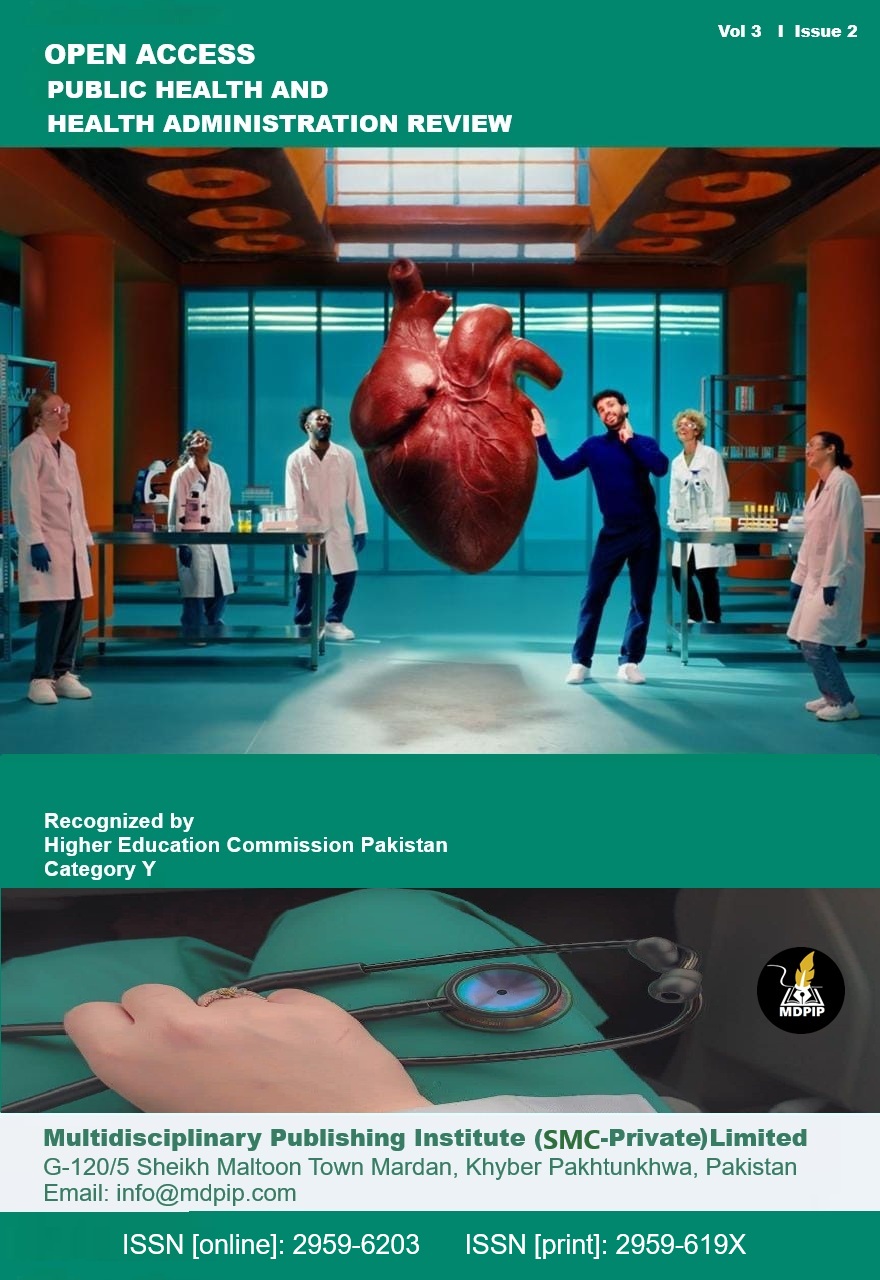An Investigation into the Critical Public Health Issue: The Incidence of Enteric Fever (Typhoid Fever) among Febrile Patients
DOI:
https://doi.org/10.59644/oaphhar.3(2).173Keywords:
Typhoid Fever, Salmonella, IgG, IgM, Immunochromatographic TestsAbstract
Enteric fever, like typhoid, had the highest morbidity in Asia, accounting for nearly 93% of global cases. Poor hygiene, poor sanitation and sewerage systems, over population are the key contributing factors. The precise epidemiological data regarding typhoid fever in Islamabad is currently unavailable; thus, this study was conceived considering this gap in knowledge. One thousand clinical isolates, irrespective of age and gender, were obtained from typhoid fever suspects who visited Mufti Mahmood Memorial Teaching (MMMT) Hospital between July 2024 and December 2024. Immunochromatographic tests (ICT) were conducted to identify acute (IgM) and chronic (IgG) stage antibodies in the serum of suspected patients. The results indicated that 314 (81%) patients tested positive for IgM antibodies, 70 (18%) for both IgM and IgG, and notably, no samples were positive for IgG alone. Seropositivity for IgM by gender was 129 (37%) males and 219 (63%) females. Among individuals with both IgG and IgM positive antibodies, 31 (42%) were male and 43 (48%) were female. The significant prevalence of typhoid fever among febrile patients attending the hospital signifies that it is a critical public health issue within the spectrum of febrile illnesses in Dera Ismail Khan. Preventive measures, including immunization programs, enhanced sanitary standards, clean water supply, and adequate sewage systems, should be prioritized for typhoid management in metropolitan areas such as Dera Ismail Khan.






